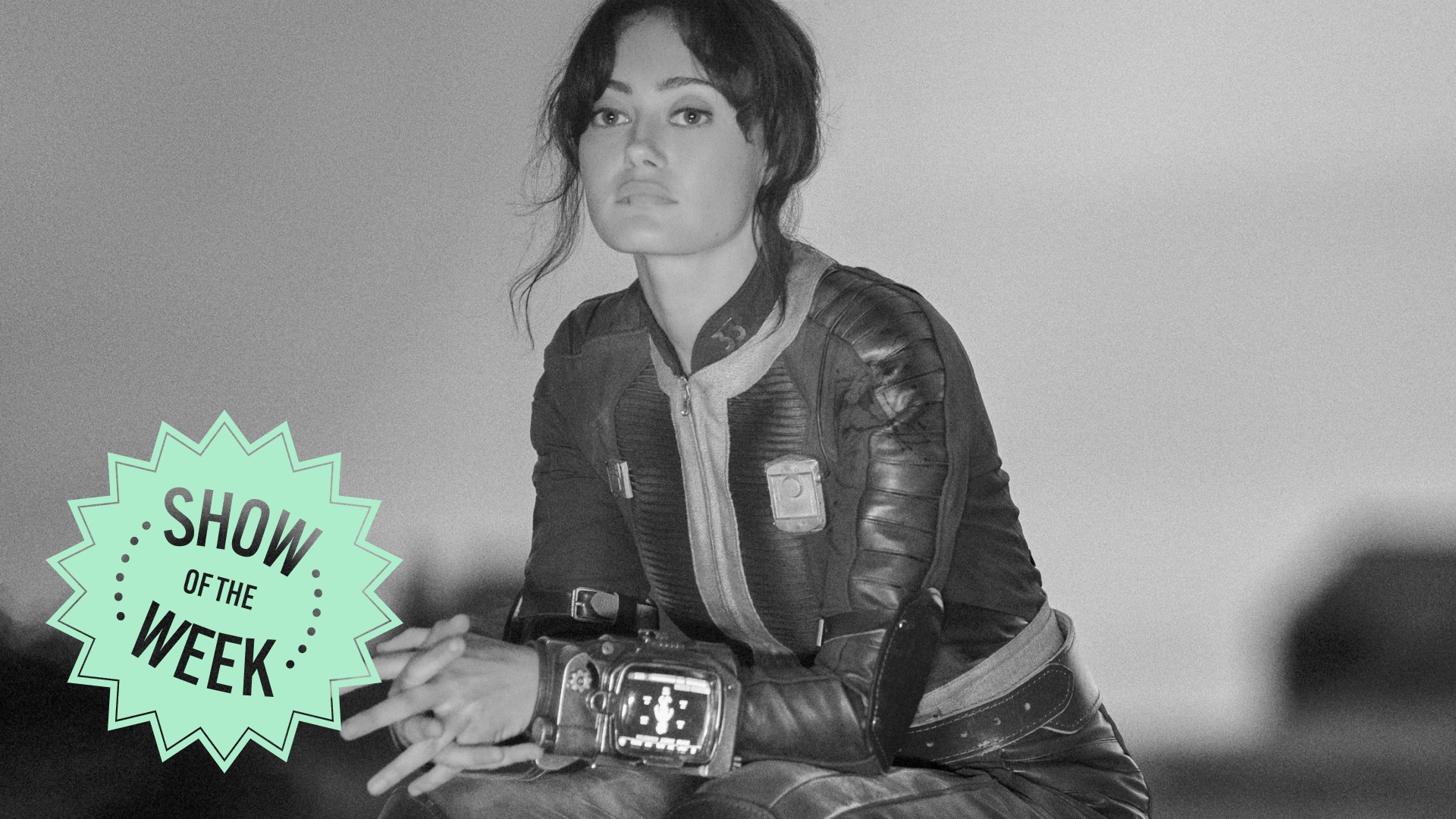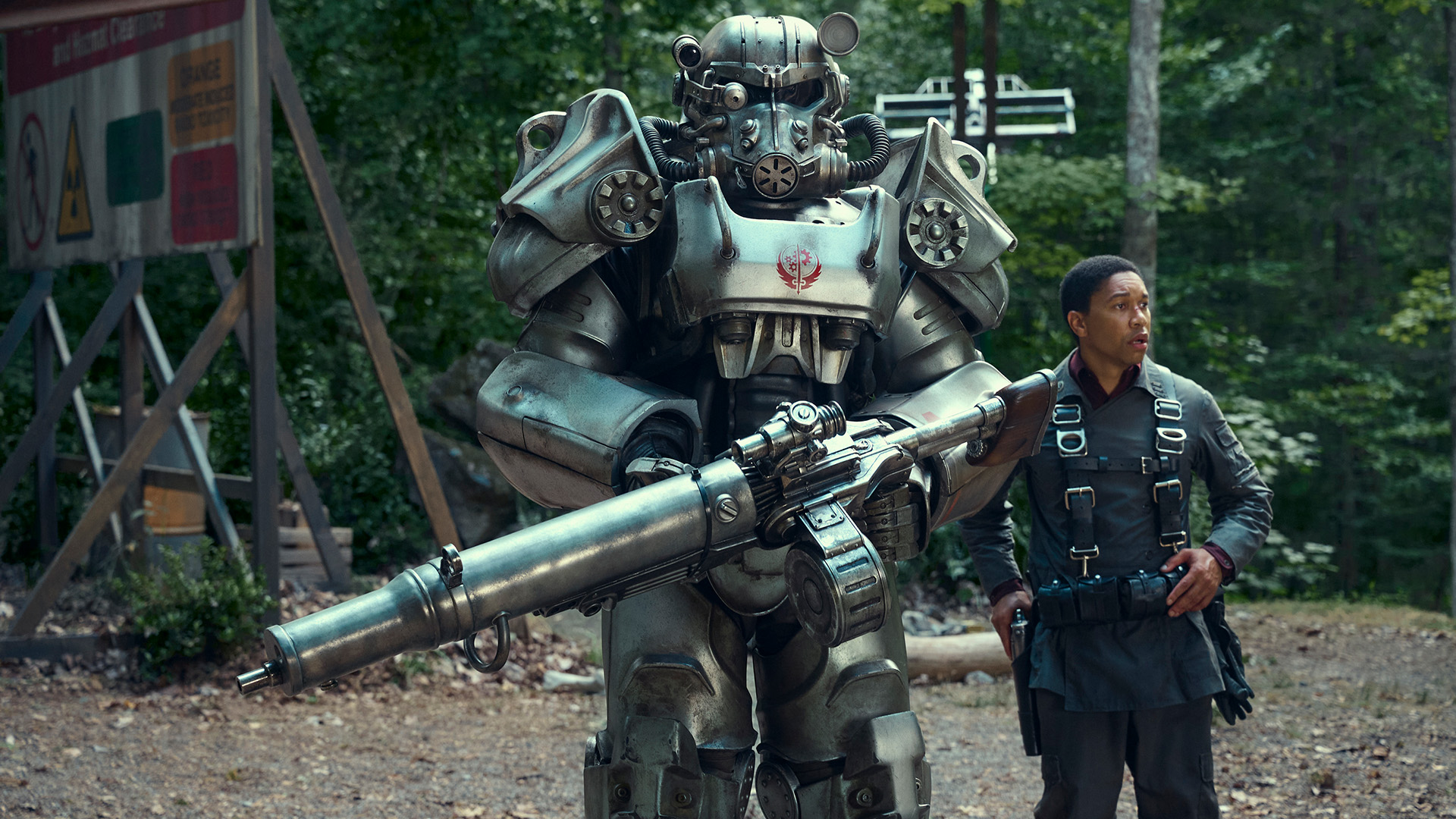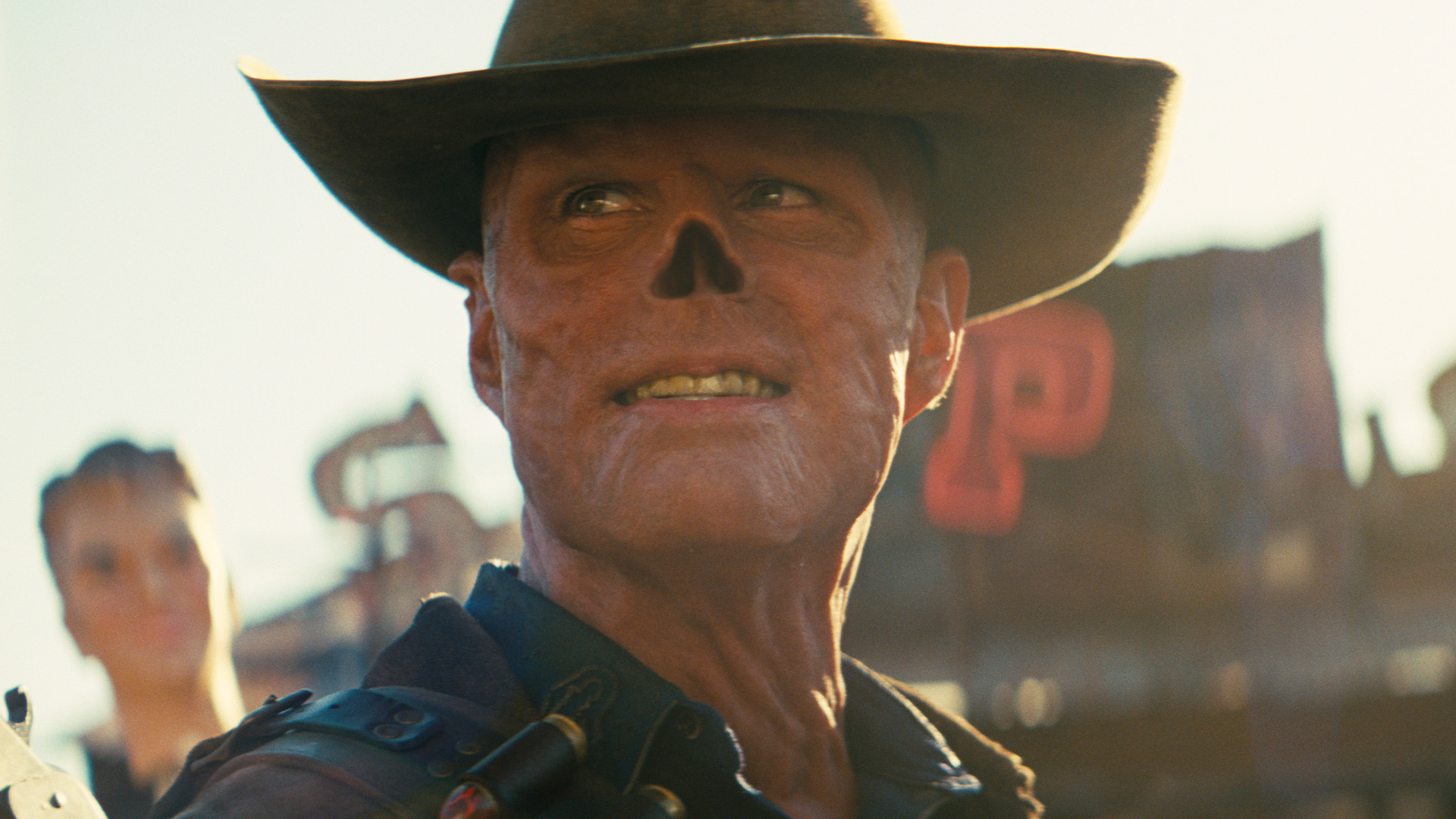You’ll laugh – right up until you don’t – with Fallout, ideal show for the apocalypse

Clarisse Loughrey’s Show of the Week column, published every Friday, spotlights a new show to watch or skip. This week: darkly comic adventures in post-nuke America in Fallout.
After the bombs fell on Hiroshima and Nagasaki, a new kind of sickness spread across America. The nation had committed an unfathomable atrocity in order to win a war and, in return, found that their triumph would have to contend with the sensation they’d secured their own annihilation. Only under these bitterly ironic conditions—the persistent nuclear threat that spanned the Cold War—could music like Sheldon Allman’s Crawl Out Through The Fallout thrive, with its lyrics: “When your white count’s getting higher // Hurry, don’t delay // I’ll hold you close and kiss those // Radiation burns away.”
The tune plays over the end credits of the very first episode of Prime Video’s Fallout series, adapted from Bethesda’s long-running video game series. It’s one of several novelty nuclear songs borrowed from the source material’s soundtrack, alongside Five Stars’s Atom Bomb Baby and Elton Britt’s Uranium Fever—those titles alone, I’m sure, will throw fans back into their memories of cheerily roaming the apocalyptic wasteland, in an America several hundred years after it’s been obliterated in a nuclear war against China, slurping on bottles of Nuka-Cola and unloading a round of shotgun shells into a very large and angry mutated crab.
Fallout, in a way, welcomes its players into that nihilistic, devil-may-care Cold War mentality. It’s a weird, dark satire set in a retro-futuristic world in which nuclear technology and post-values were allowed to dominate 20th-century America, only for the whole thing to blow up (literally) in everyone’s faces.
Now, the concept of American exceptionalism sounds delusional, cult-like even, when spouted from the mouths of people living in the remains of a downed commercial jet, roasting outsized cockroaches for dinner, and praying they won’t be dragged away by Hulk-sized, Shrek-faced super mutants in the middle of the night. But, the more recent games are also Bethesda properties, too, and like the equally popular Elder Scrolls series, paint its massive, open-world canvas with a distinctive, yet somewhat hard-to-place mix of tones. Dad humour meets panicked terror, meets romance (I am forever yours, Fallout 4’s John Hancock), meets heart-wrenching tragedy, meets wide-eyed adventurousness.
For Fallout fans, the prospect of a spin-off TV series wasn’t automatically welcome news. Maybe HBO’s The Last of Us wasn’t an easier sell, but it was certainly more straightforward: it’s a linear storyline that’s stark, brutal, and plainly emotional. So, the fact that the Fallout series is good—in fact, overwhelmingly good—is one of the nicest surprises in television this year. It helps, first off, that this is an original story merely set within the world of the games. Fallout is an RPG, and a lot of its immersive quality comes from your ability, as a player, to carve out your own fate. You can be a hero, a monster, or merely an agent of chaos who refuses to follow basic instructions.
Prime Video’s Fallout pays tribute to that brand of gameplay by dividing its story between three protagonists, all of whom end up on the trail of the same, mysterious figure (Michael Emerson). Lucy MacLean (Ella Purnell) occupies the position traditionally held by the player: the vault dweller who’s just emerged from the underground shelter they’ve spent decades (or, perhaps, their entire lives) in, with no clue as to how bad it can really get out there in the wasteland.

There’s also Maximus (Aaron Moten), a recruit to the quasi-religious, quasi-military Brotherhood of Steel, who like to stomp around in Gundam-looking power armour, in search of pre-war tech to preserve. It’s a brutal organisation, with no room for the individual’s pain. He does his best to survive. And, finally, there’s The Ghoul (Walton Goggins), a desiccated living corpse, corrupted by radiation, who now makes his way as a cowboy bounty hunter enthralled only by his personal code. Sure, he’s a little scary, but he’s also exceptionally cool.
Fallout hops between their perspectives, and between every necessary tone, with surprising ease. Here’s a world that’s illogical, and yet makes total, internal sense, populated with the kind of oddballs we’d expect: kind or nefarious, but largely irritated by your presence (there’s a great moment where a farmer calls after Lucy: “you’re a good person for not shooting me with that gun!”)
Purnell does the perky, electroshocked-by-capitalist-propaganda schtick extremely well, while Moten brings a kind of elegiac fortitude to the soldier archetype. And Goggins? No one could do this kind of freaky spin on the gunslinger better, and he delivers every line, gesture, and smirk with movie icon precision. There’s a secret history to the character, too, that lets the actor map out the painful journey that brought him to this kind of blood-slicked amorality.

All of this seems to have worked thanks to a canny combination of voices. It’s created by Westworld’s Lisa Joy and Jonathan Nolan, already comfortable with lending the sci-fi genre an urgent topicality—while only four episodes were available to critics, a promising link has already been forged between all those retro-futuristic aesthetics and the reality of the Red Scare. Its executive producers and showrunners are Geneva Robertson-Dworet, whose screenplays for 2018’s Tomb Raider and Captain Marvel demonstrate the streak of sincerity and optimism Fallout inevitably needs to fully work, and Graham Wagner, whose role on the sketch show Portlandia lends itself well to the show’s absurdist elements.
There are enough references, too, to tire a fan’s eyes out from feverishly scanning the screen to pick them all up, though it’s never to the point of excess. In an “if you know, you know” aside, The Ghoul jokes that the golden rule of the wasteland is “thou shalt get sidetracked by bulls*** every goddamn time.” Conspiracy is rife. Lucy’s father, Hank, clearly knows more than he lets on. He’s played by Kyle McLachlan, in a nice spin on the kind of protagonist we usually associate with him, the good guy tumbling down the rabbit hole in Blue Velvet or Twin Peaks.
The series also lets us spend more time in the vaults than the games usually do, thanks to a B-plot involving Lucy’s brother Norm (Moisés Arias). And there are flashbacks, too, that are probably best left a surprise—though I’ll mention the opening sequence, which drops us into ground zero and is shot with such sterile elegance, in contrast to any of the zaniness that comes after, that it really sends a chill through your bones. In that sense, Fallout is an ideal show for the apocalypse. You’ll laugh—right up until you don’t.

















